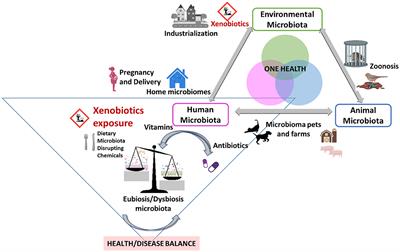EDITORIAL
Published on 13 Jun 2023
Editorial: Risk of dietary hazardous substances and impact on human microbiota: possible role in several dysbiosis phenotypes, volume II

doi 10.3389/fmicb.2023.1221169
- 746 views
- 2 citations
6,190
Total downloads
24k
Total views and downloads
You will be redirected to our submission process.
EDITORIAL
Published on 13 Jun 2023

ORIGINAL RESEARCH
Published on 16 Nov 2022

ORIGINAL RESEARCH
Published on 08 Sep 2022

ORIGINAL RESEARCH
Published on 14 Jun 2022

ORIGINAL RESEARCH
Published on 10 May 2022

PERSPECTIVE
Published on 04 May 2022

ORIGINAL RESEARCH
Published on 07 Sep 2021

